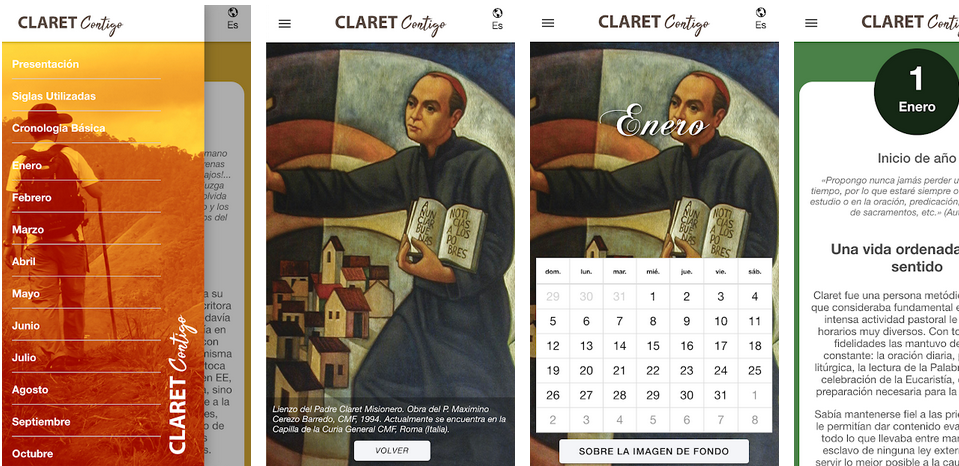LOVE FOR MY BROTHER AND SISTERS
When we look at others, we can do it with “dark glasses” or with “transfiguring glasses”; these latter ones are used by God. According to Genesis 1:31, “God saw all that he had made, and it was very good”; and the poetic theologian, St. John of the Cross says that God beautified what he saw, “He passed through the groves in haste/ And merely regarding them/ As He passedClothed them with His beauty” (Spiritual Canticle); that is why a creature who is ugly in the beginning, says to the creator, “You can regard me now/ Since You have regarded me/ Grace and beauty have You given me” (ib.). This should be our style of looking and avoiding “inadequate glasses” that would project towards others the ugliness that could nest in our heart.
Claret looked at his brothers with “the eyes´ of God”, and so he says, “I love you because you are created by God, in his image and for heaven. I love you because you are redeemed by the blood of Christ” (Auto. 448). Some years ago there was a famous song in Spain. It ran as follows, “What does it matter for us, all these people look at the earth and see nothing more than earth?”. Effectively to see, it is almost better not to have eyes. We have to look beyond.
A Christian is called to look simultaneously at things and through them: their origin and meaning. When a mother looks at her son, she does not observe whether he is less graceful perhaps or has any physical defects; but she goes beyond all these and says, “It is my son!” For her the child is of great value.
The love of neighbour that Claret insisted on so much cannot be reduced to a sterile satisfaction. He gets immediately the consequence, “as proof for my love for him, I shall do and suffer all pains and works”. There is a saying, “works are love”, that´s why Claret added at once to his “declaration of love”, his willingness, “to undergo any work or pain for your sake”.






